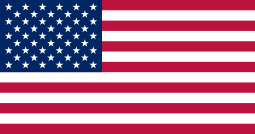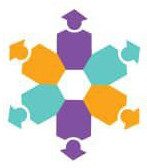
USA
Total Students
19.0 million
Int. Students
1,126,690
Population
346,467,473
WHY STUDY IN THE UNITED STATES?
Studying in the United States offers a multitude of benefits that make it a top choice for international students. The U.S. is home to some of the world's leading educational institutions, as well as a diverse and dynamic cultural environment. Here are some key reasons to study in the United States:
Top-Ranked Universities: The U.S. is home to many prestigious universities, including Harvard, Stanford, MIT, and Yale, which are consistently ranked among the best in the world. These institutions offer high-quality programs in a wide variety of disciplines. U.S. universities are known for their emphasis on creativity, critical thinking, and hands-on learning. Students have access to diverse courses, and programs are often flexible, allowing for the customization of academic paths to suit individual interests and career goals. The U.S. is a global leader in scientific, technological, and medical research. Universities and research institutions provide opportunities for students to engage in groundbreaking work and contribute to new discoveries. With thousands of universities offering a wide array of programs and courses, you have the flexibility to pursue almost any field of study you can think of.
Graduate and Professional Opportunities: U.S. universities provide diverse graduate programs (master’s, Ph.D.) and professional degrees (J.D., M.D.) that are recognized worldwide and open doors to various career paths.
Opportunities for Work Experience: TInternational students in the U.S. are generally allowed to work part-time on campus during their studies, helping them gain practical experience and support their living costs. After completing a degree, international students in the U.S. may apply for Optional Practical Training (OPT), which allows them to work in their field of study for up to one year (or up to three years for STEM graduates). This is a valuable opportunity to gain hands-on experience in the U.S. job market. Some students may also have access to internships or work placements as part of their academic programs through Curricular Practical Training (CPT), which helps further bridge the gap between theory and real-world application.
Career Opportunities and Networking: The U.S. is one of the largest economies in the world, offering vast career opportunities across numerous industries, including technology, finance, healthcare, entertainment, engineering, and more. A degree from a U.S. institution can enhance your employability, both in the U.S. and globally. U.S. universities often have vast and influential alumni networks. Students can benefit from mentorship, networking events, and career fairs that connect them with professionals in their field.
Cutting-Edge Technology and Facilities: Many U.S. universities invest heavily in their campus infrastructure, offering world-class libraries, research labs, student centers, and other facilities that enhance the academic and extracurricular experience. The U.S. is a hub of technological and entrepreneurial innovation, particularly in cities like Silicon Valley. Students interested in startups, tech industries, or cutting-edge research can take advantage of the many opportunities available in these fields.
Global Recognition of U.S. Degrees: A degree from a U.S. university is highly regarded around the world. U.S. institutions are known for their rigorous academic standards and strong reputation in various fields, which can boost your professional profile internationally. Many U.S. universities have campuses and partnerships across the globe, providing students with opportunities for international exposure and global connections that can benefit their future careers.
Academic Flexibility and Cultural Freedom: The US education system offers a flexible approach to education, allowing students to explore different subjects before declaring a major. Students have the flexibility to choose electives, change majors, and customize their academic journey. The U.S. is known for its strong emphasis on individual rights and freedoms, allowing students to express themselves, participate in social movements, and pursue a range of extracurricular activities.
Pathways to Citizenship: After completing their studies, international students may have the opportunity to apply for work visas, including the H-1B visa for specialized workers. This could potentially lead to permanent residency in the U.S., especially for those in high-demand fields like STEM. Graduating from a U.S. institution can open doors to careers not just in the U.S., but internationally, as U.S. qualifications are recognized and respected around the world.
Beautiful and Diverse Landscapes: From the beaches of California to the mountains of Colorado, the U.S. offers diverse landscapes that allow students to explore different outdoor activities, such as hiking, skiing, and surfing, depending on their location. The U.S. is geographically and culturally diverse, with each region offering unique experiences, food, traditions, and activities. This allows students to experience different aspects of American life during their stay.

